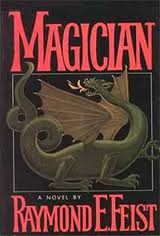In the first part of this series I discussed the
need for a strong purpose behind a character’s goals. In this post I will be
talking about competition and rivalry.
There are stories where characters are isolated or
are in competition with themselves. These kinds of stories are hard to write
and can easily come across as self-important and self-indulgent. Everything’s
about him, nobody else counts, he has to do it all by himself.
That’s usually not the intention, but it’s hard not to come
over like that if every sentence starts with the same subject.
However, once you bring in a rival to your main
character, things not only become more dynamic, they also help the reader see
the main character more clearly.
























































































































